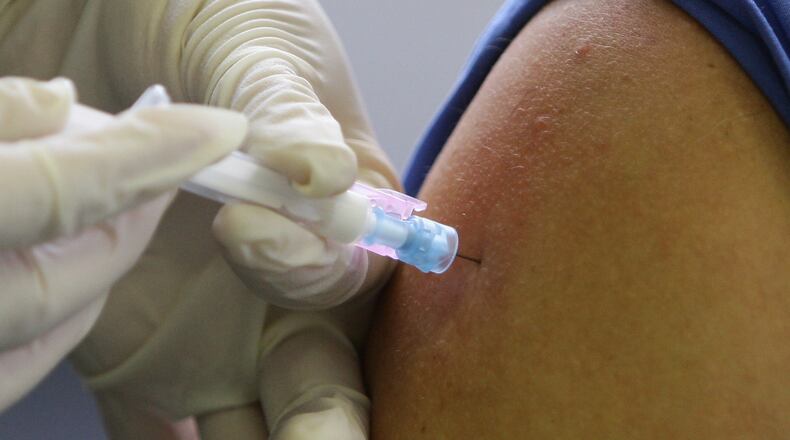Men can take hormone injections to prevent pregnancy in their partners with nearly the same success rate that women have with the pill, according to a newly released study. However, as with hormonal treatments for women, the side effects could pose problems.
The study was conducted from September 2008 to May 2012, although researchers said in a news release that they stopped enrolling people in 2011 because of the rate of reported adverse effects – specifically depression and other mood disorders. One person reported depression that was "probably related" to the contraceptive, according to the study, published online last week in The Journal of Clinical Endocrinology & Metabolism.
The trial involved more than 300 men between the ages of 18 and 45 and their partners in Australia, Germany, the United Kingdom, Chile, India, Indonesia and Italy.
Of the 274 couples who made it to the "efficacy stage" of the study, only four became pregnant, giving the shots a nearly 96 percent rate of success.
"More research is needed to advance this concept to the point that it can be made widely available to men as a method of contraception," said one of the study's authors, Mario Philip Reyes Festin, of the World Health Organization in Geneva. "Although the injections were effective in reducing the rate of pregnancy, the combination of hormones needs to be studied more to consider a good balance between efficacy and safety."
The study involved giving participating men a series of injections to lower their sperm counts and requiring them to use the injections as their primary form of contraception. To be approved for the study, couples had to have been monogamous for at least a year before joining.
According to The Guttmacher Institute, a research and policy group that focuses on reproductive issues, 40 percent of all pregnancies were unintended in 2012, the most recent year for which information is available.
The side effects, however, were too much for some participants, including 20 couples who dropped out because of their reactions.
According to researchers, many participants – nearly 46 percent – reported getting acne, and a majority of them said it was "probable" that their skin issues stemmed from the hormone injections. Thirty-eight percent of men said the injections gave them an increased libido. Seventeen percent of participants reported "emotional disorders" over the course of the study, although most considered their symptoms mild.
"Despite the adverse effects, more than 75 percent of participants reported being willing to use this method of contraception at the conclusion of the trial," researchers said.
About the Author
Keep Reading
The Latest
Featured


